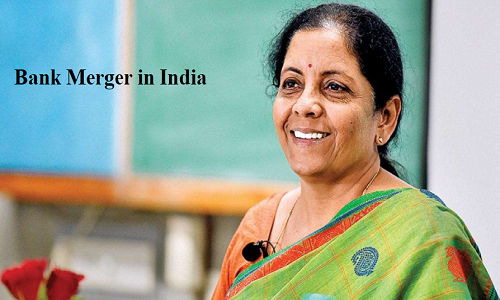Bank Mergers in India
From April 1, 2020, 10 public sector banks have been consolidated into four big banks. In a bank merger scenario, there are some amalgamation banks and an anchor bank, and the former gets merged with the latter. The bank merger list 2020 consists of 10 banks that include OBC and United Bank of India being merged into PNB, Syndicate Bank being merged into Canara Bank, Andhra Bank and Corporation Bank into Union Bank of India, and Indian Bank into Allahabad Bank. This is the biggest amalgamation exercise in the banking sector of India. However, a bank merger is not a new thing in our country. It has been around ever since the early 90s. This is usually done to bail out weaker banking institutions while giving protection to customer interests. The reason behind bank mergers is that the non-performing assets of some banks grow and they become loss-making entities and the Government can’t always bear that. A merger is surely a pretty big step and several factors get affected by the same. Everybody is looking for answers in various finance blogs. Without further ado, let’s get into the pros and cons of the process.
Pros
- The bank merger will pave the way for more capital generation opportunities from the market and also internally, for the anchor bank.
- The Government will receive more dividends that become part of its non-tax revenues.
- The competition in the financial market will decrease since there will be a lesser number of individual banks existing. This in turn will give rise to concentrated payment and greater settlement flows.
- Bank merger will reduce the operational risks since the size of the overall bank will grow, so the distance between the management and operational employees increases.
- The credit portfolio of the banks and the non-performing assets (NPAs) will be dealt with in a better way. The amalgamation will not allow the expenditure of more resources in a particular area and thus, strengthening the banks with stocks.
- The bank amalgamation will lead to greater synergy and cost benefits. This would have a positive effect on the Indian Banking System.
- PSBs will gain a competitive advantage by investing in and adopting technologies all across the banks being amalgamated. Digitalization and technological help is necessary to make such a huge change possible.
- The customers of these banks might get access to a larger network of bank branches and ATMs.
Cons
- After the bank merger in India, the operations of the stronger bank will be hindered due to the unhealthy impact of the weaker banks. For example, after the bank merger was announced, the shares of Vijaya Bank and Bank of Baroda fell significantly but Dena Bank incurred steep growth.
- Human resources and cultural issues might also hinder the success of bank mergers.
- The decision of the Government that is the dominant shareholder will affect the minority shareholders who will now have a minimum say in matters.
- The bank merger process that involves healthy banks taking over weaker banks is not much likely to solve the current bad loan problems.
- The management will have to face critical challenges related to the rationalization of branches, staff integration, synchronizing accounting, etc.
- The employees are fearful of losing their jobs and their promotion possibilities might be affected as well.
- The pensions could be affected due to separate employee benefit structures.
- The account holders will have to update the newly allotted IFSC codes and account numbers with different third party entities like the Income Tax returns, mutual funds, etc. This is also needed to be done for auto credit of salaries, auto-debit of bills/ charges, auto credit of dividends, etc.
- If there are a lot of branches in the same area after the merger, then some branches might be closed.
- At some stage, the credit/debit cards will have to be exchanged for new ones bearing the name and logo of the new anchor banking institution.
- The post-dated checkbooks will stand canceled and new checkbooks will be allotted.
- The paperwork will increase to keep the financial track of FDs investment and other details that will be shifted under the merged bank’s authority.
In Last..
The COVID-19 outbreak induced lockdown is witnessing the biggest bank consolidation exercise in India. Let’s wait and watch in the upcoming days how the bank mergers progress and how the same affects the banking system in India.


